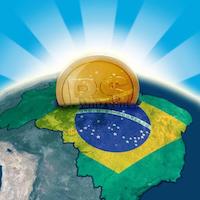Unilever has rejected a $143 billion merger proposal from Kraft Heinz, the Brazilian-controlled food conglomerate 3G Capital and mega-dealer Warren Buffett, setting the stage for a battle between two of the world’s largest consumer products companies.The Anglo-Dutch company, behind big brands like the Dove soap and the Ben & Jerry ice cream, said the offer of $ 50 per share and new papers – an 18% premium on the closing price on Thursday (16) – “fundamentally undervalues Unilever”.
“Unilever has rejected the proposal because it sees no merit, financial or strategic, for its shareholders. Unilever sees no basis for further discussions,” the statement said.
Kraft Heinz’s approach comes at a sensitive time for the UK, with its politicians and big companies trying to maneuver through the uncertainty generated by the country’s exit from the European Union. The decision to leave the world’s largest trading block caused a fall in pound sterling’s value, which made UK assets significantly cheaper and attractive to the attack by wealthy non-British investors.
Unilever has a complex shareholding structure, with papers listed on the London and Amsterdam stock exchanges.
Kraft Heinz said it had made “a comprehensive proposal for Unilever on combining the two groups to create a leading consumer products company with a mission of long-term growth and sustainable living.”
“Although Unilever has declined the proposal, the company is eager to work out an agreement on the terms of a transaction. There can be no certainty that any other formal proposal will be made to the Unilever board.”
Unilever said Kraft Heinz’s offer consisted of an existing Unilever payout of $ 30.23 in cash and a further 0.222 share of the company resulting from the merger.
Shares of Unilever rose 12.5 percent to 37.59 pounds on Friday, giving the company a market capitalization of 113 billion pounds, which means that any acquisition would be one of the largest in history. Its US-listed stocks rose 10.6% to $ 47.08 in pre-opening trading. It is the fourth largest company in the world of consumer products by sales, with revenue last year of 52.7 billion euros.
Under UK rules on takeovers, Kraft Heinz has until markets close on March 17 to make a firm bid or refrain from making a new bid for Unilever for six months.
This merger would unite some of the top brands in the global consumer industry, adding Dove and Knorr to Kraft Heinz’s list of Philadelphia cream cheese, Heinz ketchup and Weight Watchers.
News of the offer comes a day after Kraft Heinz shares fell nearly 5 percent, the biggest daily drop since the big merger that shaped the company in 2015. The company reported a 3.7 percent drop in quarterly sales Quarter and said it intended to step up cost cutting
Like many other consumer products companies, Unilever has been seeing slowing growth as consumers are not loyal to brands in mature markets and are increasingly turning to start-ups for new products.
Emerging markets account for 58% of Unilever’s sales, more than the industry average, and the company relies heavily on them to grow.
Kraft Heinz was formed in a $ 100 billion deal orchestrated by Buffett and 3G Capital in 2015 and has focused on aggressively reducing costs in the companies it has purchased, with the goal of saving $ 1.7 billion annually by 2018.
Analysts expect further consolidation in the industry and speculate that 3G could strike again, two years after its last big business. Some point to Mondelez International as a possible target.
In January, Unilever chief executive Paul Polman shocked investors by warning of “challenging” conditions in the first half of this year, after a slow 2016.
Unilever reported a 3% increase in pre-tax profit in 2016 to 7.5 billion euros, driven by a reduction in costs and an increase in efficiency that raised basic operating margins by 50 basis points to 15.3% .
Polman warned on the occasion that “difficult market conditions” would only ease in the second half of this year. “We expect a slow start, with improvement as the year progresses,” he said.
The immediate cause of poor performance in the last three months of last year came from India and Brazil: Unilever’s second and third largest markets, respectively, representing 14% of the group’s revenues.

Leave a Reply